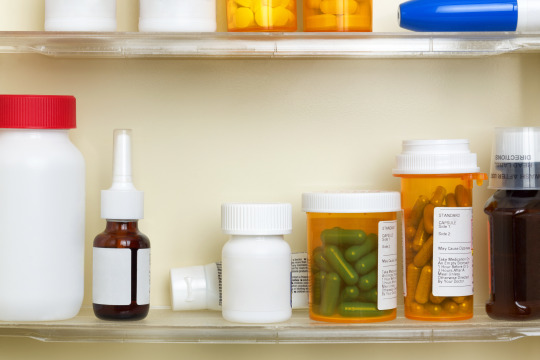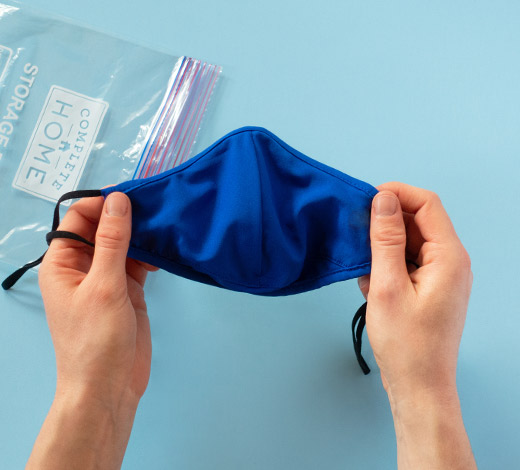
We all experience minor aches and pains from time to time that can be relieved by over-the-counter (OTC) medicines.

It’s wise to keep a stock of common OTC medicines in your home so you don’t have to dash off to the pharmacy when you’re already suffering. OTC medicines can, for example, relieve pain, aches, itches, heartburn, cold and flu symptoms. Here’s what should be in your medicine cabinet.
1. Pain relievers
A couple different types of OTC pain relievers should be part of your home medicine supply, since some people either can’t tolerate certain pain relievers or can’t mix certain ones with their prescription drugs. I recommend keeping a supply of acetaminophen and ibuprofen on hand. Both not only relieve pain but also reduce fevers. Ibuprofen or a different type of nonsteroidal anti-inflammatory drug (NSAID) has the added advantage of relieving inflammation.
2. Medicines for indigestion and diarrhea
Pepto-Bismol or its generic equivalent, bismuth subsalicylate, is good to have on hand, since it covers a variety of stomach ailments like upset stomach or diarrhea. Chewable antacids are useful for the temporary relief of heartburn.
3. Relief from cold, flu and allergy symptoms
Non-prescription antihistamines may reduce the sneezing and runny noses associated with the common cold. Cough and cold lozenges can help relieve some of the symptoms of the common cold and flu.
4. Ointments and creams
I recommend having hydrocortisone cream and an antibiotic ointment in your medicine cabinet. Hydrocortisone cream can be used for the temporary relief of minor skin irritations, itching and rashes. Antibiotic ointments, such as Neosporin, help prevent infection from cuts, scrapes and burns.
5. First aid supplies
These can include various sizes of bandages, gauze pads, antiseptic wipes, and an oral thermometer. In addition to these OTC items, here’s how to get the most from your home medicine cabinet supply:
- Always follow the directions on medicine labels, and never exceed the labeled recommended doses
- If you have questions, ask your pharmacist or other health care provider
- Keep medicines in a safe location, away from a child’s reach or sight
- Check expiration dates. If a medicine is expired, dispose it properly by taking it to a take-back program location or mix it with an undesirable substance, such as used coffee grounds or kitty litter, and put it in a sealed, nondescript container, like an empty can or sealable plastic bag. Then throw containers in the trash.
- Be aware of the possibility that even OTC drugs can interact with prescription medicines
You should also know that storing medicines in a warm, humid environment (like the bathroom) can influence how effective they are. Check out these tips from the National Institutes of Health on safe medicine storage – another reason to make throwing out old medications part of your spring cleaning!
Be well, stay well ~
Pharmacist Andy
Andy Stergachis, Ph.D., R.Ph. is the Director of the Global Medicines Program at the University of Washington in Seattle and a subject expert on public health and pharmacy-related topics.


